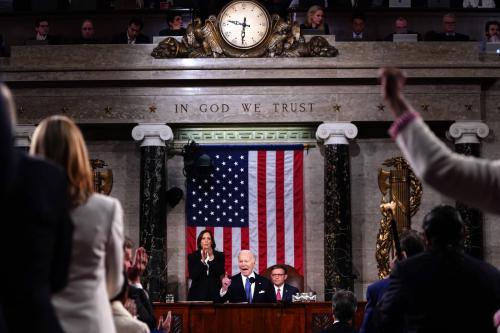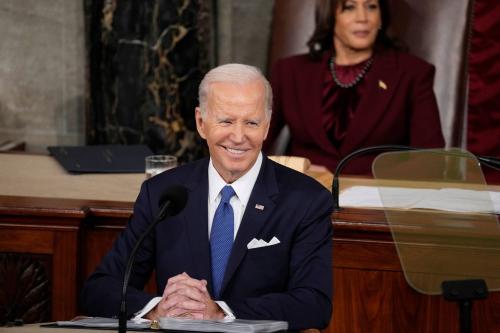Recently, in the Washington Post, Tom Mann and Norm Ornstein discussed the biggest challenge for the new GOP: internal strife. They argue that the 2014 midterm successes that Republicans enjoy will largely serve to amplify divisions within the party as much as disagreement across parties.
Mann and Ornstein point to a series of issues—Obamacare, immigration, government funding, Dodd-Frank— where the Republicans are in competing camps. There are more extreme elements of the party who want to take hardline approaches and others who want to make more modest changes while “trying hard to create a new center-right space in the party.”
The response to the President’s executive actions on immigration will serve as a true first test of this thesis. Republican messaging has been quite mixed in the past few days. Sen. Rand Paul from Kentucky said the president’s “actions blatantly ignore the Separation of Powers and the principles our country was founded on.” Outgoing Rep. Michele Bachmann from Minnesota argued about the executive action that “the social cost will be profound on the U.S. taxpayer—millions of unskilled, illiterate, foreign nationals coming into the United States who can’t speak English.”
Other Republicans were more restrained. Speaker Boehner noted, “We have a broken immigration system, and the American people expect us to work together to fix it. And we oughta do it in the Democratic process—moving bills from the People’s House, through the Senate and to the President’s desk.” Senator Lindsay Graham from South Carolina, while opposing the president’s decision to act unilaterally, had harsh words for fellow Republicans like Michele Bachman who opted for more extreme rhetoric.
Such division among Republicans is not insurmountable, and on immigration, disdain for the president’s actions may be strong enough to overcome rhetorical differences. However, leadership and the rank-and-file see messaging, and ultimately a policy response, from very different perspectives. This internal strife leaves Speaker Boehner and Leader McConnell with two options: rely heavily on Democrats to pass legislation in areas where leadership wants to show a willingness to govern or fall prey to a type of political theater that will likely have broader consequences for the party’s future.
On immigration, the new congressional leadership faces an internal battle on how to respond, how to build strategy, and how to deal with the President. Mann and Ornstein note that disconnect may well be the new face of the Republican Majority in the 114th Congress, rather than one unique to the current immigration debate.



Commentary
Republican Division on an Immigration Response Highlights a GOP Challenge
November 21, 2014